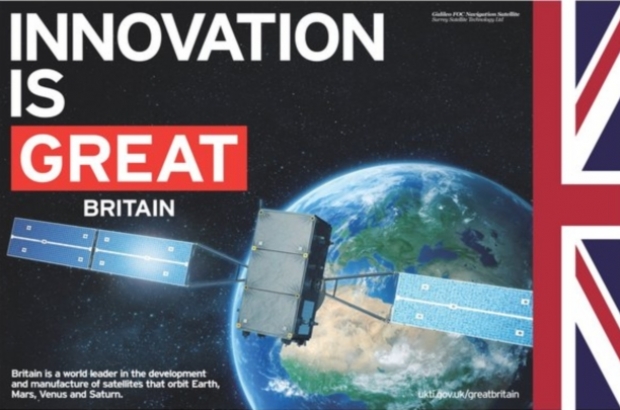- Daily & Weekly newsletters
- Buy & download The Bulletin
- Comment on our articles
Innovating to success: a GREAT new world
For many of us September is the month associated with going ‘back to school’ after the summer break.
So it is fitting that the Embassy is kicking off this new term with the launch of the University of Wolverhampton’s Brussels office on 16 September. The Wolverhampton University office will promote research and innovation links between European partners, including the UK and Belgium.
Why does this matter? Because research is key to innovation – and innovation is key to our competitive future. That goes for the UK, for Belgium, and for the EU as a whole.
And the amount of scientific cooperation between the UK and Belgium is not as well known as it should be.
When there was talk of the discovery of the mysterious Higgs boson particle last year we learned that this should really have been called the Englert Higgs Boson following the work of both Edinburgh university researcher Peter Higgs and ULB Professor Francois Englert.
People were even surprised to discover that Belgian Prime Minister Elio Di Rupo once taught chemistry at Leeds University.
One of our great UK research institutions the London School of Hygiene and Tropical Medicine is headed by a Belgian, Peter Piot who formerly led the UN aids programme.
British and Belgian universities boast some excellent partnerships and exchanges. The Universities of Kent and Ghent signed an agreement for strengthening cooperation and we have seen close work between KU Leuven and University College London, including in the context of joint bids for EU funding.
Student mobility between countries is also vital for research programmes. Via the Erasmus programme, 259 British students came to Belgium for work and study placements in 2011-2012, a year where UK participation reached record levels.
The private sector has a vital and growing role in our scientific co-operation. Belgian companies like the pharmaceutical company UCB are supporting research in UK universities. GSK’s global vaccine centre in Wavre has pioneered world-changing vaccines and been a motor for the development of biotechnology in Belgium.
The synergy between business, government and universities is an area where we can learn from each other. One of the best meetings we had at the British Residence here was when David Willets, UK Minister for Science and Universities, quizzed Belgian universities on common challenges such as how to cross the so-called “valley of death” between the birth of an idea at a university and bringing it to market.
It is no surprise that many recent UK policy developments have their equivalents in Belgium. The UK was following the Belgian example when it introduced the patent box which gives tax credits for Research and Development.
UK Business Secretary Vince Cable recently announced a significant expansion in the groundbreaking Catapult technology and innovation centres that help turn great ideas into commercial realities, from High Value Manufacturing to Cell Therapy. They have flourishing equivalents in Belgium in centres such as the IMEC research centre in Leuven or the Biopark in Charleroi.
Complementary strengths, such as in biotechnology, creative industries, micro-electronics and environmental sustainability, to name just a few, combined with Belgium’s proximity to the UK – a mere two hours on Eurostar - means practical academic and business cooperation is easier than elsewhere in the world.
And this is why the opening of the University of Wolverhampton office in Brussels this September is a welcome opportunity to drive forward research and innovation. The University’s Deputy Vice Chancellor Ian Oakes said that he was excited to collaborate and share ideas with a wider European network; and so am I.




















